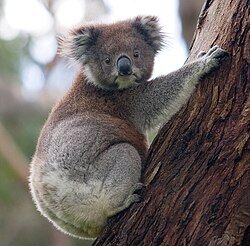guda
Appearance
Acehnese
[edit]Etymology
[edit]Noun
[edit]guda
Basque
[edit]Etymology
[edit]First attested in 1745 in Larramendi's dictionary, where it is listed as a variant of gudu (“combat”).
Pronunciation
[edit]Noun
[edit]guda inan
Declension
[edit]| indefinite | singular | plural | |
|---|---|---|---|
| absolutive | guda | guda | gudak |
| ergative | gudak | gudak | gudek |
| dative | gudari | gudari | gudei |
| genitive | gudaren | gudaren | guden |
| comitative | gudarekin | gudarekin | gudekin |
| causative | gudarengatik | gudarengatik | gudengatik |
| benefactive | gudarentzat | gudarentzat | gudentzat |
| instrumental | gudaz | gudaz | gudez |
| inessive | gudatan | gudan | gudetan |
| locative | gudatako | gudako | gudetako |
| allative | gudatara | gudara | gudetara |
| terminative | gudataraino | gudaraino | gudetaraino |
| directive | gudatarantz | gudarantz | gudetarantz |
| destinative | gudatarako | gudarako | gudetarako |
| ablative | gudatatik | gudatik | gudetatik |
| partitive | gudarik | — | — |
| prolative | gudatzat | — | — |
Derived terms
[edit]Further reading
[edit]- “guda”, in Euskaltzaindiaren Hiztegia [Dictionary of the Basque Academy] (in Basque), Euskaltzaindia [Royal Academy of the Basque Language]
- “guda”, in Orotariko Euskal Hiztegia [General Basque Dictionary], Euskaltzaindia, 1987–2005
Dyirbal
[edit]Etymology
[edit]From Proto-Pama-Nyungan *gudaga. Related to Mbabaram dog, Yidiny gudaga.
Noun
[edit]guda (dual gudaɖaran, plural gudaguda) (class II noun)
Gamilaraay
[edit]
Pronunciation
[edit]Noun
[edit]guda
- koala, Phascolarctos cinereus
- 1903, R. H. Mathews, “Languages of the Kamilaroi and Other Aboriginal Tribes of New South Wales”, in The Journal of the Anthropological Institute of Great Britain and Ireland, volume 33:
- Native bear .... .... guda
- (please add an English translation of this quotation)
References
[edit]- Peter Austin, A Reference Dictionary of Gamilaraay, northern New South Wales (1993)
Gothic
[edit]Romanization
[edit]guda
- Romanization of 𐌲𐌿𐌳𐌰
Pali
[edit]Alternative forms
[edit]Alternative scripts
Noun
[edit]guda n[1]
Declension
[edit]Declension table of "guda" (neuter)
| Case \ Number | Singular | Plural |
|---|---|---|
| Nominative (first) | gudaṃ | gudāni |
| Accusative (second) | gudaṃ | gudāni |
| Instrumental (third) | gudena | gudehi or gudebhi |
| Dative (fourth) | gudassa or gudāya or gudatthaṃ | gudānaṃ |
| Ablative (fifth) | gudasmā or gudamhā or gudā | gudehi or gudebhi |
| Genitive (sixth) | gudassa | gudānaṃ |
| Locative (seventh) | gudasmiṃ or gudamhi or gude | gudesu |
| Vocative (calling) | guda | gudāni |
References
[edit]- ↑ 1.0 1.1 A. P. Buddhadatta Mahāthera (1958) Concise Pāli-English Dictionary[1], 2nd edition, page 116
Venda
[edit]Verb
[edit]guda
- to learn
Derived terms
[edit]Wageman
[edit]Noun
[edit]guda
Categories:
- Acehnese terms borrowed from Tamil
- Acehnese terms derived from Tamil
- Acehnese lemmas
- Acehnese nouns
- Basque terms with IPA pronunciation
- Basque terms with audio pronunciation
- Rhymes:Basque/uda
- Rhymes:Basque/uda/2 syllables
- Rhymes:Basque/a
- Rhymes:Basque/a/2 syllables
- Basque lemmas
- Basque nouns
- Basque inanimate nouns
- Basque terms with archaic senses
- Dyirbal terms inherited from Proto-Pama-Nyungan
- Dyirbal terms derived from Proto-Pama-Nyungan
- Dyirbal lemmas
- Dyirbal nouns
- Gamilaraay terms with IPA pronunciation
- Gamilaraay lemmas
- Gamilaraay nouns
- Gamilaraay terms with quotations
- kld:Mammals
- Gothic non-lemma forms
- Gothic romanizations
- Pali lemmas
- Pali nouns
- Pali nouns in Latin script
- Pali neuter nouns
- Venda lemmas
- Venda verbs
- Wageman lemmas
- Wageman nouns

